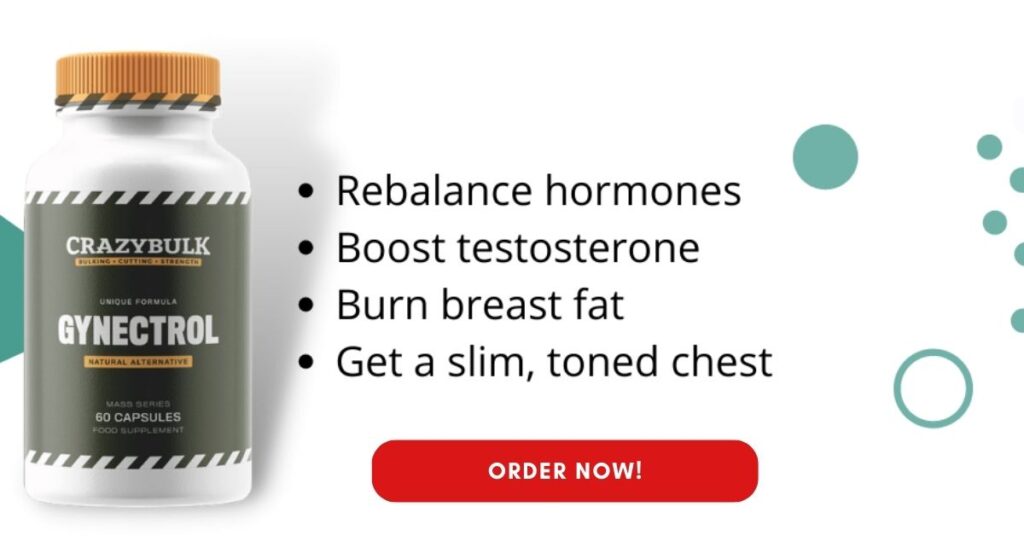Gynecomastia, a condition characterized by the enlargement of breast tissue in males, often leads to questions and concerns.
One common query is, “Can Gynecomastia Turn Into Cancer?”
This article aims to provide clarity on this matter, dispelling myths and presenting accurate information. As a source of reliable knowledge and insights, we're here to guide you through the intricacies of gynecomastia and its potential links to cancer.
Overview of Gyno and Its Types
Gyno, short for gynecomastia, is a common condition that affects men of all ages. It is characterized by the development of breast tissue in males and is often caused by an imbalance of hormones, specifically estrogen and testosterone.
There are two main types of gyno: glandular and fatty.
Glandular gyno is characterized by the growth of breast tissue, while fatty gyno is characterized by the accumulation of fat in the chest area. Both types can be treated with a variety of methods, including medication, surgery, and lifestyle changes.
While gyno can be an uncomfortable and embarrassing condition for men, it is important to remember that it is a treatable and manageable condition. With the help of a medical professional, men can find relief and regain confidence in their appearance.
Can Gynecomastia Turn Into Cancer?
Gynecomastia itself is not known to increase the risk of developing breast cancer in men. It is a benign condition, meaning it is non-cancerous.
However, having gynecomastia may indicate a hormonal imbalance, which can occasionally be caused by certain health issues that may have an associated risk of cancer.
Regardless of the presence of gynecomastia, it is important for men to check for unusual lumps or changes in their breast tissue and consult a healthcare provider promptly if they notice anything concerning. While breast cancer in men is rare, early detection is key to successful treatment.
Related: Does Gynecomastia go away Naturally?
Exploring the Relationship Between Gynecomastia and Cancer
Gynecomastia itself is not cancerous, but it's essential to recognize that both conditions can occur simultaneously. Some breast cancers may manifest with symptoms similar to gynecomastia, such as breast tissue enlargement or tenderness. However, these symptoms should not be automatically attributed to cancer. If you notice changes in your breast tissue, consulting a healthcare professional is crucial to determine the underlying cause.
Understanding Breast Cancer and Its Signs
Breast cancer is a serious medical condition that requires prompt diagnosis and treatment. While gynecomastia is not cancerous, it's crucial to be aware of the signs of breast cancer, which include:
- A lump in the breast or underarm
- Changes in breast size, shape, or appearance
- Nipple discharge other than breast milk
- Skin changes on the breast, such as redness or dimpling
How Does Gyno Develop Into Cancer

Gynecomastia, or the overdevelopment of breast tissue in men, does not turn into cancer. It is a benign (non-cancerous) condition that is caused by an imbalance of hormones, particularly estrogen and testosterone.
Breast cancer in men is rare, accounting for only about 1% of all breast cancer cases. The risk of breast cancer in men increases with age, and it is also more common in men who have a family history of breast cancer.
There is no evidence that gynecomastia increases the risk of breast cancer in men. In fact, some studies have shown that men with gynecomastia may actually have a lower risk of breast cancer.
Available Treatment Options for Gynecomastia
Gynecomastia, colloquially known as “gyno” or “man boobs”, is a medical condition characterized by the enlargement of male breast tissue. While often benign, it can lead to psychological distress and concern about body image.
The reasons behind gynecomastia are multifaceted, ranging from hormonal imbalances to the side effects of certain medications. When it comes to treating this condition, several approaches can be taken.
Here, we'll discuss the available treatment options and shed light on an increasingly popular non-surgical alternative.
1. Observation and Lifestyle Changes: In some cases, especially among adolescents, gynecomastia can resolve on its own without treatment. Medical professionals might recommend waiting for a certain period while observing any changes.
2. Medications: There are medications available that can address the hormonal imbalances causing gynecomastia. Anti-estrogens, such as raloxifene and tamoxifen, can be effective for some men. However, it's crucial to discuss potential side effects and benefits with a healthcare provider.
3. Surgery: For persistent gynecomastia that doesn't respond to other treatments, surgical options exist. These include:
- Liposuction: This procedure removes breast fat but not breast gland tissue.
- Mastectomy: This surgery removes the breast gland tissue. With modern techniques, it's often done endoscopically, which results in minimal scarring and a faster recovery.
4. Natural Supplements: There's a growing interest in non-surgical, non-pharmaceutical treatments for gynecomastia. One such option is Gynectrol by CrazyBulk.
Gynectrol is a dietary supplement designed to accelerate the fat burning process and reduce male breast size naturally. Composed of synergistic natural ingredients, Gynectrol targets subcutaneous adipose tissue in the mammary glands, providing a safer and non-invasive alternative to other treatments.

FAQs
Can gynecomastia turn into cancer?
No, gynecomastia itself does not transform into cancer. Both conditions have distinct causes and characteristics.
Does having gynecomastia increase the risk of breast cancer?
Having gynecomastia does not inherently elevate the risk of breast cancer. However, individuals should remain vigilant about breast health and undergo regular check-ups.
Can gynecomastia and breast cancer occur simultaneously?
Yes, they can coexist. Some breast cancers may present with symptoms similar to gynecomastia. Consulting a healthcare professional is essential for accurate diagnosis.
How can I differentiate between gynecomastia and breast cancer symptoms?
If you experience changes in breast tissue, such as lumps or unusual nipple discharge, consult a medical professional for a proper evaluation.
Is gynecomastia a serious medical condition?
Gynecomastia itself is a benign condition. However, any changes in breast tissue should be assessed by a healthcare provider to rule out underlying health issues.
Final Thoughts
Understanding the relationship between gynecomastia and cancer is crucial for informed decision-making and maintaining breast health.
While gynecomastia itself does not transform into cancer, it's essential to remain vigilant about any changes in breast tissue and seek medical guidance when needed.
By dispelling myths and offering accurate information, we hope to empower individuals to make informed choices regarding their health.





